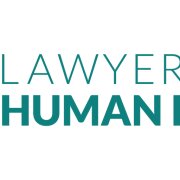Best Asylum Lawyers in Johannesburg
Share your needs with us, get contacted by law firms.
Free. Takes 2 min.
List of the best lawyers in Johannesburg, South Africa
About Asylum Law in Johannesburg, South Africa
Asylum law in Johannesburg, as in the rest of South Africa, is governed by national policies aimed at protecting individuals who have fled their home countries due to persecution, conflict, or danger to their lives. The process generally involves applying for refugee status, which, if granted, allows individuals to reside and work in the country legally. South Africa is a signatory to international conventions that influence its asylum laws, ensuring they align with international human rights standards. Johannesburg, being one of the country's major urban centers, serves as an important hub for asylum seeking processes, with various institutional support structures in place.
Why You May Need a Lawyer
There are several scenarios in which an individual seeking asylum in Johannesburg might require legal assistance. A lawyer can be immensely helpful in preparing a comprehensive asylum application, navigating the complexities of legal procedures, and providing representation in hearings or appeals. Often, asylum seekers face challenges such as language barriers, understanding their rights and obligations, or dealing with denied applications. Legal professionals can provide clarity, advocate on behalf of the applicant, and improve the chances of a successful outcome.
Local Laws Overview
The Refugees Act in South Africa is the primary legal document governing asylum applications. Key aspects include the definition of who qualifies as a refugee, the rights and responsibilities of asylum seekers, and the procedures for application and appeals. Johannesburg operates within this legal framework, requiring asylum seekers to report to the Department of Home Affairs for processing. It's crucial for applicants to adhere to the laws regarding timelines and documentation, as missing any deadlines or failing to provide adequate information can jeopardize their application.
Frequently Asked Questions
What is the process for applying for asylum in Johannesburg?
To apply for asylum, you must visit a Refugee Reception Office in South Africa. The process involves lodging an application and being interviewed by an official to determine your eligibility for asylum.
How long does the asylum process take?
The duration of the asylum process can vary. Initial decisions might take several months, and if your application is denied, appeals could extend the timeline further.
Can I work while my asylum application is being processed?
Yes, asylum seekers in South Africa are legally allowed to work and study while their applications are being processed, once you have been issued with an asylum seeker permit.
What happens if my asylum application is denied?
If your application is denied, you have the right to appeal within the stipulated period. It's often advisable to seek legal help in preparing your appeal to ensure all relevant information and supporting documentation is considered.
How can I prove my fear of persecution?
Applicants must provide credible evidence to support claims of persecution. This can include personal testimony, documentation, and reports on the conditions in the country of origin.
What rights do recognized refugees have in South Africa?
Recognized refugees are granted a refugee status permit and have the right to work, study, and live in South Africa legally. They are also protected against refoulement, or forced return to their home country.
Is it necessary to have a lawyer during the asylum process?
While not mandatory, having a lawyer can significantly help in navigating the legal system, preparing documents, and ensuring your rights are protected throughout the process.
What are some common challenges faced by asylum seekers in Johannesburg?
Common challenges include language barriers, lengthy processing times, lack of resources, and difficulties in accessing basic services such as healthcare and education.
Can my family join me in South Africa if I am granted asylum?
Recognized refugees can apply for family reunification, allowing immediate family members to join them in South Africa under refugee status as well.
What should I do if my circumstances change during the application process?
It is vital to report any changes in your situation to the Refugee Reception Office as soon as possible, as these may impact your asylum claim.
Additional Resources
For additional support, consider reaching out to organizations such as the United Nations High Commissioner for Refugees (UNHCR), Lawyers for Human Rights, or the Consortium for Refugees and Migrants in South Africa (CoRMSA). These organizations provide valuable resources and assistance to asylum seekers.
Next Steps
If you find yourself in need of legal assistance with your asylum application in Johannesburg, start by contacting a qualified immigration lawyer or legal aid organization. They can provide advice tailored to your situation and guide you through every step of the application process. Ensure you keep all documentation and appointments with the Department of Home Affairs, and stay informed about your rights and responsibilities as an asylum seeker in South Africa.
Lawzana helps you find the best lawyers and law firms in Johannesburg through a curated and pre-screened list of qualified legal professionals. Our platform offers rankings and detailed profiles of attorneys and law firms, allowing you to compare based on practice areas, including Asylum, experience, and client feedback.
Each profile includes a description of the firm's areas of practice, client reviews, team members and partners, year of establishment, spoken languages, office locations, contact information, social media presence, and any published articles or resources. Most firms on our platform speak English and are experienced in both local and international legal matters.
Get a quote from top-rated law firms in Johannesburg, South Africa — quickly, securely, and without unnecessary hassle.
Disclaimer:
The information provided on this page is for general informational purposes only and does not constitute legal advice. While we strive to ensure the accuracy and relevance of the content, legal information may change over time, and interpretations of the law can vary. You should always consult with a qualified legal professional for advice specific to your situation.
We disclaim all liability for actions taken or not taken based on the content of this page. If you believe any information is incorrect or outdated, please contact us, and we will review and update it where appropriate.













